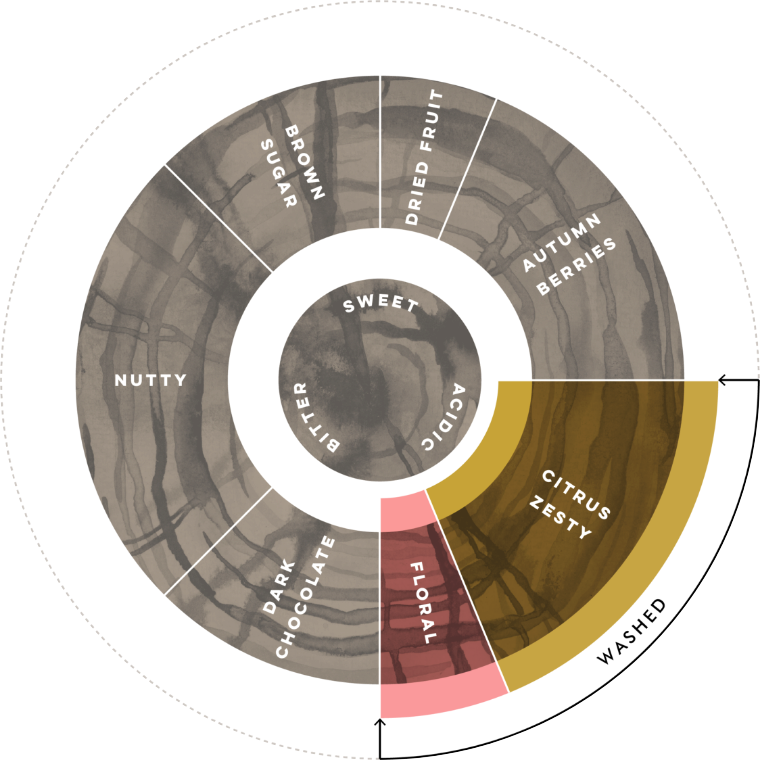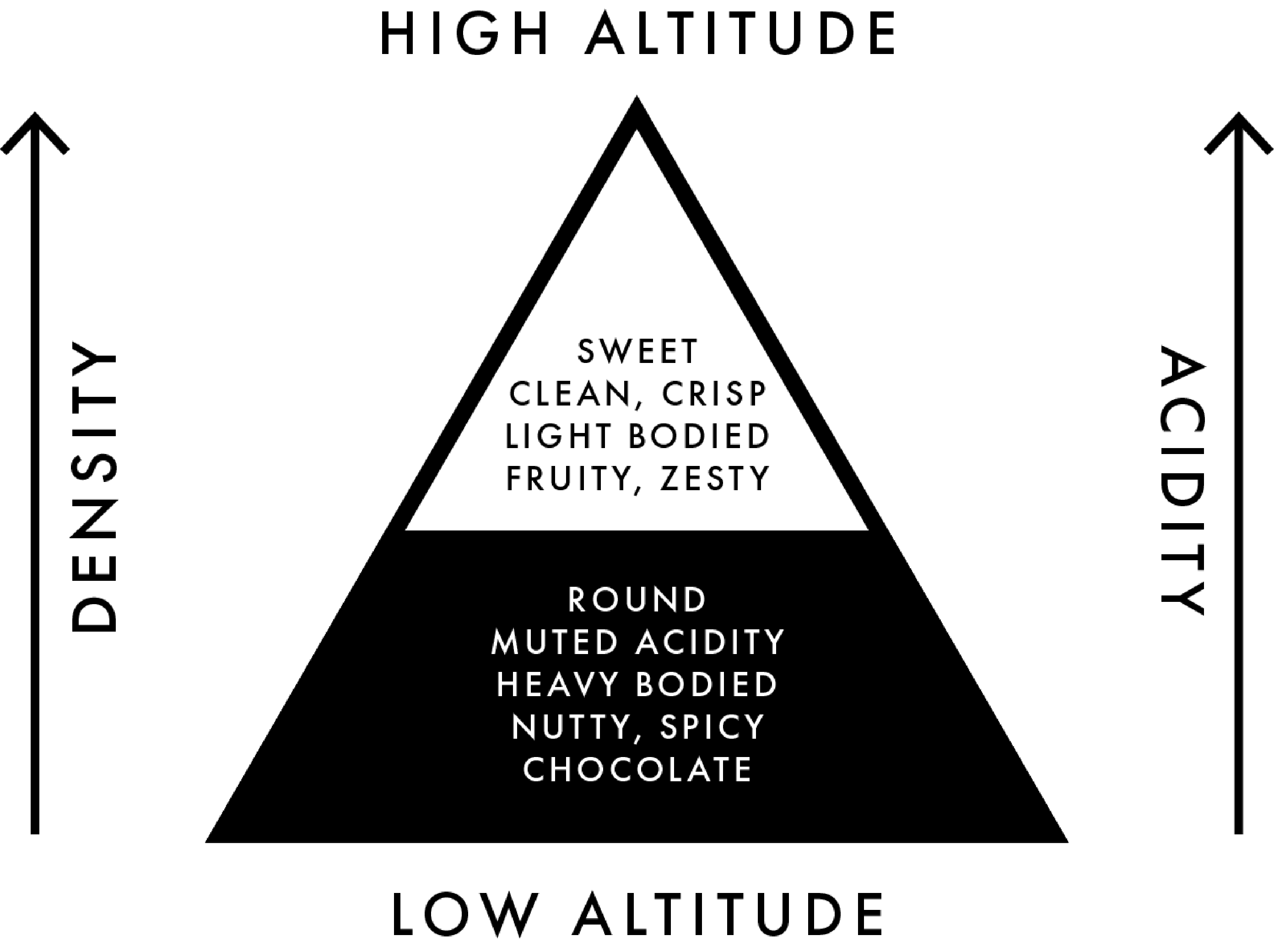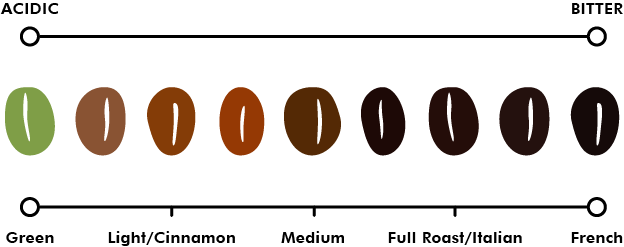First and foremost we choose a coffee because it tastes great. These can be a stunning examples of classic flavours, more unusual or challenging selections or something brings a key attribute to a blend. Each one is carefully selected during a series of rigorous "cuppings" (tastings) by the team at Dark Woods. An array of flavours to suit a wide range of styles and tastes because no one coffee suits all!

Many of the coffees come to our attention because of Damian's extensive travels over the years; making friends and colleagues along the way and getting to know some of the best farms the coffee world has to offer. We choose producer partners not just for the quality of their beans but the professional ways in which they are managed and the way they care for the environment and the people they work with.
We work with all sorts of farms - larger more established farms passed down through the generations, small-holder farmers and to community run co-operatives (like our colleagues in Peru that are part of Café Feminino, where all the operations are managed by women). Most of the time a lifetime of experience, skilled agronomy and shrewd business brains are behind the world's top coffee producers; don't be swayed by simple stereotypes of peasant farmers.
That said, coffee is still a "Cinderella" industry, with precious little research and development done over the years to improve the quality or yield of varieties grown or to provide protection from devastating diseases like leaf rust. If the same situation existed in the wheat or rice industry we would all have suffered!
That is why we are part of the World Coffee Research "check off" programme, contributing towards the vital work they do with every kilo of coffee we buy. Their Multilocation Variety Trial seeks, for the very first time, to catalogue the species best suited to a particular location; resilient to climatic conditions and disease whilst still delivering great tasting coffee. We really believe this to be one of the most significant developments in our industry's history and think the results will have huge positive implications, especially for those working at origin.
No one type of wine suits everyone and no type is right or wrong - it's all down to you. Different grape varieties, origins and processing methods affect the flavour of your final glass and it's much the same with coffee. There are four main areas where a bit of knowledge will help guide you to the most suitable coffee for you. These are:
Despite there being over 100 known species of coffee, only two are commonly grown - Arabica and Robusta. In very general terms, Arabica is sweeter and more nuanced with a citrus acidity and a lighter body, whilst Robusta, though lacking that acidity has a more earthy and bitter flavour and a fuller body. Within each species are numerous different varieties or varietals which are of particular interest in the more quality-driven Arabica market. Most are close cousins but odd ones like Geisha (Gesha) offer an unusual floral complexity and others such as Maragogype or Pacamara are recognisable for the size of their beans.
Along with roast, processing is probably the most profound influencer of coffee flavour. This refers to the method used to remove the coffee bean from the cherry and the way it is dried and prepared afterwards.

Whole fruit is picked and dried gradually in the sun before the dried pulp flaked off to remove the seeds (beans) inside. Think of it as turning grapes into raisins. These coffees can be really wild due to the fermentation that occurs during drying - fruity, sweet, heavy bodied, boozy or "funky"!

Whole cherries are pulped and then washed to remove all traces of the sticky fruit residue. The bean can then be more swiftly dried in the sun or drying rooms. These coffees tend to be clean, crisp and balanced - bright, juicy, light-medium body.

Sits somewhere in the middle! The whole fruit is pulped and then the beans are dried with some of the fruit and sticky mucilage still attached. As with the process, the flavours tend fall between those typical in the other two styles.

Decaffeinated coffee need not be a compromise. We source specialty grade Central American single estate coffees that have been treated using the Swiss Water process and roast them with the same care as we do the rest of our range. Unlike cheaper commerc¬ial examples that are often harshly processed with industrial chemicals, our Lamplight Decaf is gently decaffeinated with water for a sweet and full flavour.
This really boils down to a combination of altitude and regional nuances in processing. Though it's helpful to have an idea of what countries coffees you may have enjoyed in the past, speciality coffee is really more interested in representing coffee from small producers that display unique or very specific examples of style or flavour and it's sometimes quite hard to make generalisations about a whole region, never mind a whole country!

The roast profile (degree of heat used over time), is a dominant factor in the flavour of your coffee. We often explain it to people by comparing it to cooking an onion!

Bite into a raw onion and it is sharp and acidic. Left lightly roasted, coffee also retains its natural fruity acidity. It may have some of the fruity sweetness but lacks the more bitter flavours that some people describe as "stronger".

Cook that onion on the stove top for a few minutes and that acidity diminishes, making way for a sweeter caramel flavour. This is where mid roast coffees sit. Not as zesty, but sweet and rich with a more developed body.

Continue cooking your onion and it can get burnt and bitter! This is how a lot of commercial coffees are roasted. We prefer not to take our coffee too dark as it destroys much of what makes it special. However, carefully done and with the right coffees, a fuller roast can result in a pleasing rich body and a deep, dark chocolate flavour.

No matter how good the coffee is, to get the best from it it needs to be made well. There are many different brewing methods to choose from, most are relatively straight forward but a few tips (backed up with some science), can make all the difference. Just click on your preferred brewing method below.